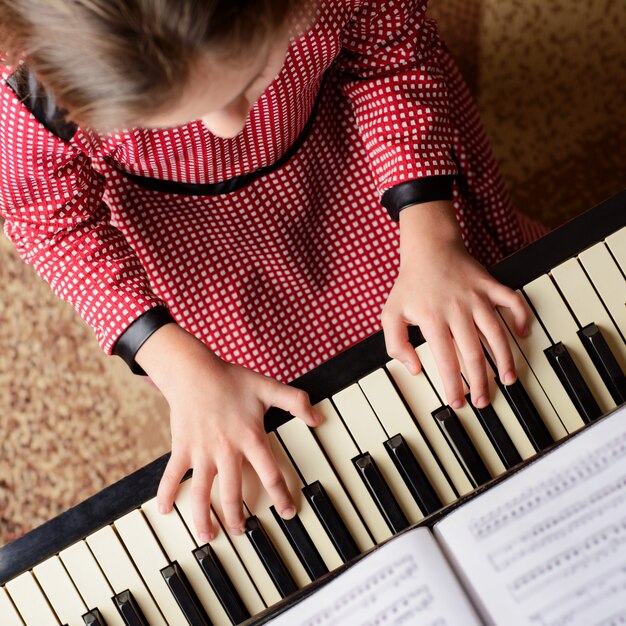My training with Trinity in music allows me to bring rhythm, notation and harmony to my students. I play the piano to facilitate an exploration of music in which all my students can participate. With this, I give my students the opportunity to enjoy making music as much as I do, and to reap the benefits of increased academic performance, aural and memory skills and self-confidence.

Benefits for Kids
“Music training direct children’s attention to sounds, and teaches them to make sound-meaning connections, eventually leading to heightened biological processing of sound that is associated with superior academic performance.” – Professor Nina Kraus
Studies show that music can have positive biological effects on a child’s brain, including improvement on their speech, a boost in self-confidence and an eagerness to learn. Thus, it can be a way to improve academic performance and promote social and holistic development for the children.
To know more about how music can benefit kids, you may check out this article.
Benefits for Elderly
Music is for everyone of all ages. Along with its benefits for kids, here are some that can also be beneficial for the elderly’s welfare.
01
Improvement on Health
- Strengthening our immune system
- Relaxation and calming effect
- Anti-stress
02
Trains our Brains
- Avoiding cognitive decline that may lead to dementia and other related conditions
- Improvement of brain’s motor and audio functions


03
Time Management
- Adapt skills on time management, which is a useful skill in different life situations
04
Increase in IQ
- Improves academic abilities
05
Be a Better Listener
- Enables to be emotionally aware of other people’s feelings
- Emotional expression through music
Here’s an article by Jordan Smith of CMUSE that discusses the five reasons why it’s good to learn a musical instrument.
